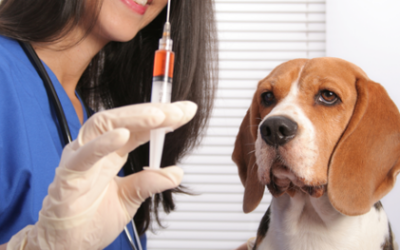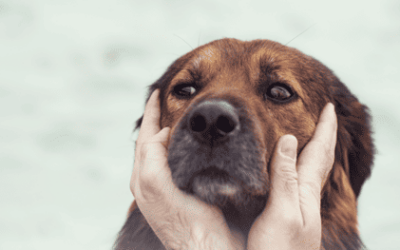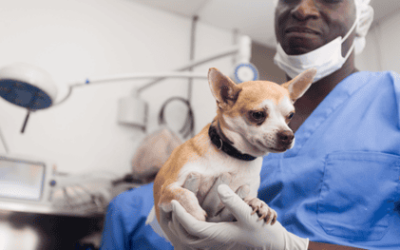How Much Does Surgery Cost For Your Dog? A Simple Guide
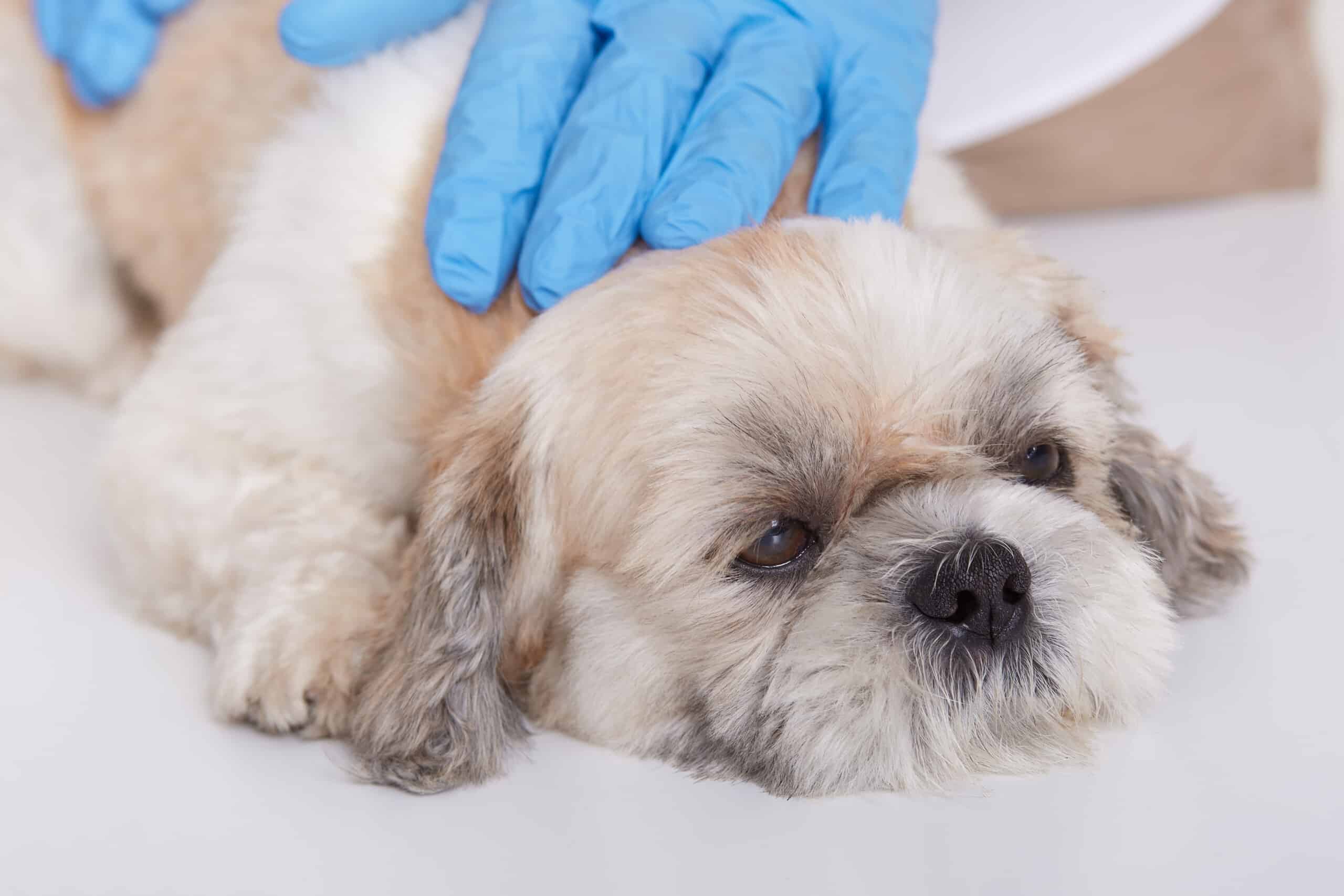
Dogs are part of the family. They are with you through the ups and downs, expressing their love and excitement. When your dog suffers from an ailment, you want to return the favor and care for their needs with just as much enthusiasm.
What are your options when your dog needs surgery? And how much does dog surgery cost? We will answer many of these questions as we go through the average cost of pet surgery. We’ll cover specific conditions, including what you can expect to pay for dog sedation or leg surgery costs.
Cost of Cataract Surgery for Dogs
A cataract is an eye condition that makes vision cloudy. That cloudiness can be seen when you look at the lens of the eye. This leads to blurred vision and total blindness in some cases. Dogs can get cataracts when they are young or old, depending on genetics, diabetes, or a nutritional imbalance.
So what is the cost of cataract surgery for dogs? The average cataract surgery for dogs costs $2,500 to $4,000. Does pet insurance cover cataract surgery? Pet insurance will always pay a portion of your costs with your veterinarian, bringing you relief when the unexpected occurs.
Gastropexy Surgery Cost
When certain dog breeds eat certain foods too quickly or move around too much immediately after eating, it can lead to their stomach flipping or twisting. This is called Gastric Dilatation-Volvulus (GDV) or bloat. This is an emergency and requires surgery to allow the food to move from the stomach into the intestines. It can happen at any stage in a dog’s life.
The surgery required to fix bloat is called a Gastropexy surgery, which flips the stomach back to a safe position and makes some corrections to make bloat less likely to reoccur in the future.
How much does emergency surgery to fix bloat or stomach flipping cost? Expect to pay between $1,500 and $7,500 without insurance.
Dog Hernia Surgery Cost
Hernias occur in dogs due to age, trauma, or congenital issues. Hernias occur when the contents in a dog’s intestine cause a hole or stretch the muscle wall. While hernia surgeries are common in dogs, the dog hernia surgery cost is high. Expect to pay an average of $1,600.
Anterior Cruciate Ligament (ACL) and Canine Cruciate Ligament (CCL) Dog Surgery Cost
When your dog injures the ACL or CCL, it cannot walk without pain. If the injury requires surgery, you can choose between extra-capsular repair, tibial plateau leveling osteotomy (TPLO), or triple tibial osteotomy (TTO).
ACL surgery in dogs costs about $3,000 per knee, and the dog cruciate ligament surgery cost can increase depending on the type of surgery you choose. Find financial relief when you look into the dog ACL surgery cost with insurance.
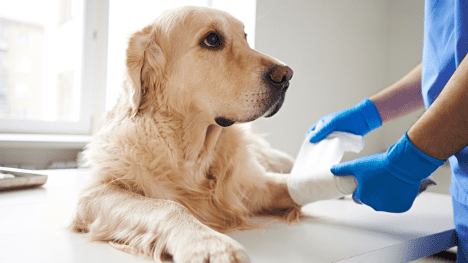
Most insurance plans require a waiting period before they cover a TPLO surgery dog cost or any other type of surgery. Can I get pet insurance before surgery? Prepare now for the unexpected by signing up for pet insurance. Then you won’t ever have to say, I can’t afford ACL surgery for my dog.
Inguinal Hernia Dog Surgery Cost
Inguinal hernias in dogs can be congenital or caused by trauma, obesity, or pregnancy. The inguinal hernia occurs near the groin and can stretch and weaken the muscle wall from the weight of pregnancy or a blunt force to the area. If the hernia becomes life-threatening and prevents the dog from urinating, it must be treated with surgery.
How much does inguinal hernia dog surgery cost? $2,300 is the average cost for an inguinal herniorrhaphy in dogs.
Dog Leg Amputation Cost
If your dog ever needs a leg amputation to stop the spread of disease or free the dog from pain, you can plan for a leg amputation surgery. The average dog leg amputation cost is $500 – $1,000.
Dog Eye Removal Cost
If your dog has a need for eye removal due to infection or advanced disease, expect to pay the average eye removal surgery cost for dogs, which is $400 – $750. A dog eye removal cost is well worth it so they can continue a good quality of life with the other working eye.
Dog Airway Obstruction Surgery Cost
When your dog ingests something that blocks the airway, this calls for emergency surgery. Without pet insurance, a dog obstruction surgery cost can be overwhelming.
Depending on the item blocking the airway, expect to pay $2,000 to 10,000 for dog obstruction surgery.
Hip Dysplasia in Dogs Surgery Cost
Your dog can show signs of hip dysplasia with aging. Hip dysplasia happens when the ball of the joint slips out of the hip socket, usually due to the socket not developing correctly and being too shallow.
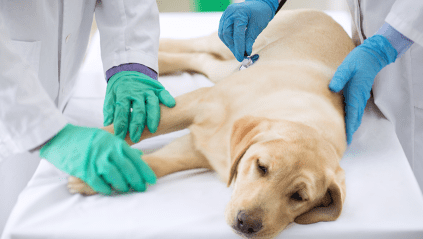
If the dog is reluctant to exercise, has stiff back legs, or runs with a bunny hop, consider hip dysplasia surgery options. The cost of hip surgery for dogs can differ, with the average cost being $5,000 per hip.
Dog IVDD Surgery Cost
Intervertebral disc disease manifests in dogs of specific breeds after suffering from a herniated disc. A ruptured disc causes spinal cord compression, bringing on debilitating symptoms.
You can treat IVDD with surgery. How much does dog IVDD surgery cost? The average fee for IVDD surgery is $1,500 to $4,000 without insurance. How much does herniated disc surgery cost with insurance? Pet insurance will pay a percentage of your vet fees, per your policy.
Dog Slipped-Disc Surgery Cost
How much does dog slipped-disc surgery cost? When a slipped disc causes discomfort and disability in your dog, you can choose surgery. Expect to pay $1,500 to $4,000.
Dog Intestinal Blockage Surgery Cost
Look for signs of intestinal blockage in your animal if they are in pain, not eating, and refraining from exercise. Intestinal blockages can be caused by a dog swallowing something that is too large for them to pass in a normal bowel movement or that gets stuck in its intestines and cannot be digested. Common causes of intestinal blockage can be things like toys, bones, rocks, or articles of clothing like socks or shoelaces.
If your dog tends to eat or chew household objects, you’ll want to keep a close eye on them to ensure they aren’t showing symptoms of intestinal blockage. How much does dog blockage surgery cost? You can pay up to $7,000 without insurance.
The fee can feel overwhelming if you are unprepared for dog intestinal blockage surgery costs. Sign up for pet insurance to prepare for the unexpected.
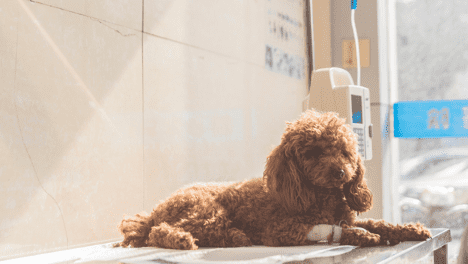
Dog Anesthesia Cost
Depending on your dog’s size and condition, you may wonder what does dog anesthesia cost? The fee can range between $90 and $1,200. Be sure to talk with your vet about the safety of putting your dog under and what to expect when the anesthesia wears off.
Dog Spinal Surgery Cost
Any form of spinal surgery for dogs requires a careful and skilled process. Whether your dog suffers from a ruptured disc or has tissue compressing the spine, you will need to learn about a dog spinal surgery cost.
For most dogs, you can pay $1,500 to $4,000 to complete this essential surgery.
Dog Leg Surgery Cost
You can take your dog to the vet for treatment if your dog has a dislocated leg. How much does a dog dislocated leg cost? The vet can place the leg back into place for the fee of $600 or so. If your dog requires surgery due to a broken bone, the surgery fee will be closer to $2,000.
Dog Back Surgery Cost
Your dog’s mobility depends on a pain-free and healthy spine and back. How much does dog back surgery cost? Whether the vet fixes a herniated disc or misalignment, you can expect to pay $1,500 to $4,000.
Dog Foreign Body Surgery Cost
If your dog swallows a foreign object that will not pass through the digestive system, it’s time to take them to the vet. How much does a dog foreign body surgery cost? Depending on the size of the dog, the foreign body, the time under anesthesia, and how far it travels down the mouth opening, you can pay up to $7,000 without insurance.
Dog Sedation Cost
What is the dog sedation cost during surgery? Pay up to $350 to keep your dog still and unconscious during significant surgeries.
Dog Orthopedic Surgery Cost
Various types of orthopedic surgeries for your pet will keep them mobile and pain-free.
- How much does a hip replacement cost? Up to $7,000 per hip
- How much does dog knee surgery cost? $1,000 – $5,000 per knee
- How much does a dog dislocated shoulder treatment cost? $1,000 – $5,000
- How much does a dog orthopedic surgery cost? Depending on the joint, you can pay up to $7,000 per surgery
- How much does a dog knee replacement cost? Up to $5,000 per knee
Dogs can incur orthopedic injuries from over-exercise, old age, or genetics. Talk with your vet about the best treatment for your pet.
Dog Tumor Surgery Cost
Dogs grow tumors just like humans. The tumors can be cancerous or noncancerous. Many times, they need to be removed. How much does dog tumor surgery cost? For invasive surgeries, the price can be $2,000 or more.
Circumstances That May Result in Your Dog Needing Surgery
Your dog can experience several ailments requiring surgery during their lifespan. Here are some of the various surgeries for dogs:
- Stitches for lacerations
- Tumor removal
- Joint reparation
- Join replacements
- Eye surgery
- Broken bones
- Bladder stones
- Intestinal blockages due to foreign objects
Unfortunately, you cannot prevent any of these conditions. It is essential to have pet insurance so that you are prepared to pay for your dog’s treatment when the time comes.
Educating Yourself About the Risks Involved in Dog Surgery
In this modern age, veterinary medicine is very advanced. Although risks are minimized during surgery, there are still risks pet parents should consider.
Infection
Infections may still arise even if the surgery is performed correctly in sterile conditions. Therefore, always be on the lookout for redness around the incision areas. If there is pus or increased swelling, contact your vet. If your dog acts differently than expected while recovering from surgery, bring them in for an examination.
Side Effects of Anesthesia
Anesthesia can cause a post-op cough due to intubation. Or your dog may experience blood pressure fluctuations during surgery. After surgery, they can contract aspiration pneumonia. Watch for signs of these side effects and take action immediately if any arise.
Preparing for Dog Surgery
Before surgery, the dog should fast, starting at 10 pm the night before. Sometimes, they can drink water in the morning. The vet may administer light sedation to prepare the pup for surgery, including taking blood pressure and running vitals. They will also get pre-surgery bloodwork to ensure the dog is healthy enough for the procedure.
During the Dog Surgery
During the surgery, the vet will keep a close eye on your dog’s vitals to be sure that they are comfortable and well during the procedure. You can remain in the office or return once your dog is ready for pickup.
The Period After Dog Surgery
Each surgery will vary in how long your dog will need to remain at the hospital under observation.
Once your pet is home, limit activity and watch for any warning signs of poor health. In addition, keep sutures covered to keep them free of germs and keep the dog from biting them off. Arrange your schedule so the dog can receive supervision for at least 24 hours after surgery.
Watch for these warning signs:
- Vomiting or diarrhea
- Loss of appetite for more than 2 days
- Refusal to drink for more than 1 day
- Weakness
- Nasal discharge
- Depression
Contact your vet with any questions or concerns. You can never be too safe.
Changing Dog Bandages and Cleaning Incisions
Keep the incisions covered, and do not get the dog wet during recovery time. Follow cleaning instructions from your vet when you change the bandages. Always wash your hands and use sterile bandages when caring for your pet.
Water and Food Intake After Surgery
After surgery, your dog should slowly return to its normal diet. Limit the amount of water and food for the first 8 hours after surgery. Your vet will provide any special instructions regarding food or drink while the anesthesia wears off. Sometimes it is advised that your dog be fed measured quantities of food and water during recovery. Feeding instructions will vary depending on your dog’s situation and the type of surgery, so be sure to fully discuss post-surgery diet and feeding instructions with your vet before you leave. A special diet may be required if your dog had intestinal surgery.
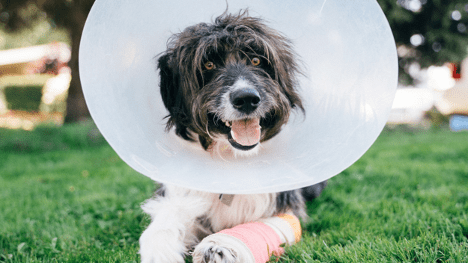
Dog Recovery Period
Your vet may send you home with a cone to keep the dog from biting off the sutures. Other options are undershirts that cover the stitches and are more comfortable to wear.
You should discuss pain management options during recovery with your vet. Your vet may prescribe painkillers, supplements, or anti-anxiety medication to help your dog stay pain-free and calm during their recovery. Beyond prescription medications, you can also try home remedies to help your dog recover. One example would be CBD treatment to calm your dog and help relieve pain during surgery recovery. Remember to discuss the use of CBD treatment with your vet before you start to ensure that it is safe and appropriate for your dog’s specific needs.
What Are the Ways of Paying for the Dog Surgery?
If surgery comes up as a big shock to your budget, there are ways to pay for the unexpected surgery charges.
0% APR Credit Card
Charge the pet surgery costs to a credit card with 0% interest for an initial period. Then you can take your time paying down the fees without incurring interest.
Veterinary Financing
Many vets offer financing options for surgery fees through CareCredit or other financing services. Break up the cost into a monthly payment schedule to lessen the burden on your finances.
Personal Loan
Take out a personal loan with a fixed interest rate, payment plan, and fixed loan length. Then you can pay off your surgery costs over a few years if needed.
Pet Insurance: Overcoming the Financial Hurdles of Pet Surgery
One of the best ways to cut surgery costs is to sign up for pet insurance before the ailment occurs. No one ever plans to bring their dog in for emergency service. Stay prepared by signing up for pet insurance.
Will My Pet Insurance Plan Cover the Cost of Veterinary Surgery?
You can choose how comprehensive you would like your plan to be. Choose a dog health insurance plan that covers accidents and illnesses. Or choose a plan that will cover accidents only.https://getodie.com/plans-for-dogs/
Customize your plan with a deductible, percentage of coverage, and co-insurance payments.
What Does Pet Insurance Cover?
- Accidents
- Illness Diagnostics and Treatment
- Emergency Care
- Periodontal Disease
- Surgery
- X-rays, CT Scans, MRIs
- ACL Injuries
- Fractures
- Hereditary Issues
Choose a plan to cover it all, or customize the plan to your pet’s needs.
What Does Pet Insurance Not Cover?
Like other pet insurance companies, Odie does not cover the following:
- Dental Cleanings
- Spaying/Neutering
- Obedience Training
- Boarding
- Cosmetic Procedures
- Breeding
- Behavioral Conditions
The Illness & Injury Plan
Choose The Illness & Injury Plan to protect your pet from any diseases over its lifespan. If your pet gets sick or injured, your insurance plan will cover most of the fees, including x-rays and diagnostics.
The Accident-Only Plan
The Accident Only Plan is less comprehensive but still covers accident and emergency care. Whether your pet needs surgery or has a dental fracture, The Accident-Only Plan has you covered.
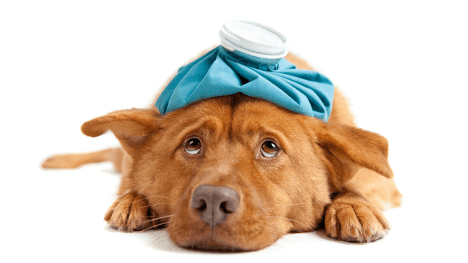
FAQs
Can I Get Pet Insurance Before Surgery?
As with all pet insurance policies, Odie does not cover pre-existing conditions. If your pet needs surgery, you will have to wait at least six months before using The Illness & Injury Plan.
Does Pet Insurance Cover Cataract Surgery?
Cataracts are common conditions found in aging dogs. When you sign up for The Illness & Injury Plan, you can expect insurance coverage for cataract surgery.
What Is the Waiting Period for Pet Insurance?
Unfortunately, pre-existing conditions are not covered through The Illness & Injury Plan. Here are some associated waiting periods for other ailments:
- Accidents and Injuries: 3 days
- Illnesses: 14 days
- Cruciate Ligament Ailments: 6 months
What Is the Annual Limit for Pet Insurance?
Customize The Illness & Injury Plan to fit an annual limit that makes sense for your dog. If you choose an annual limit of $10,000, Odie will cover up to $10,000 in eligible claims during one calendar year.
This article provides a guide to understanding pet insurance.

